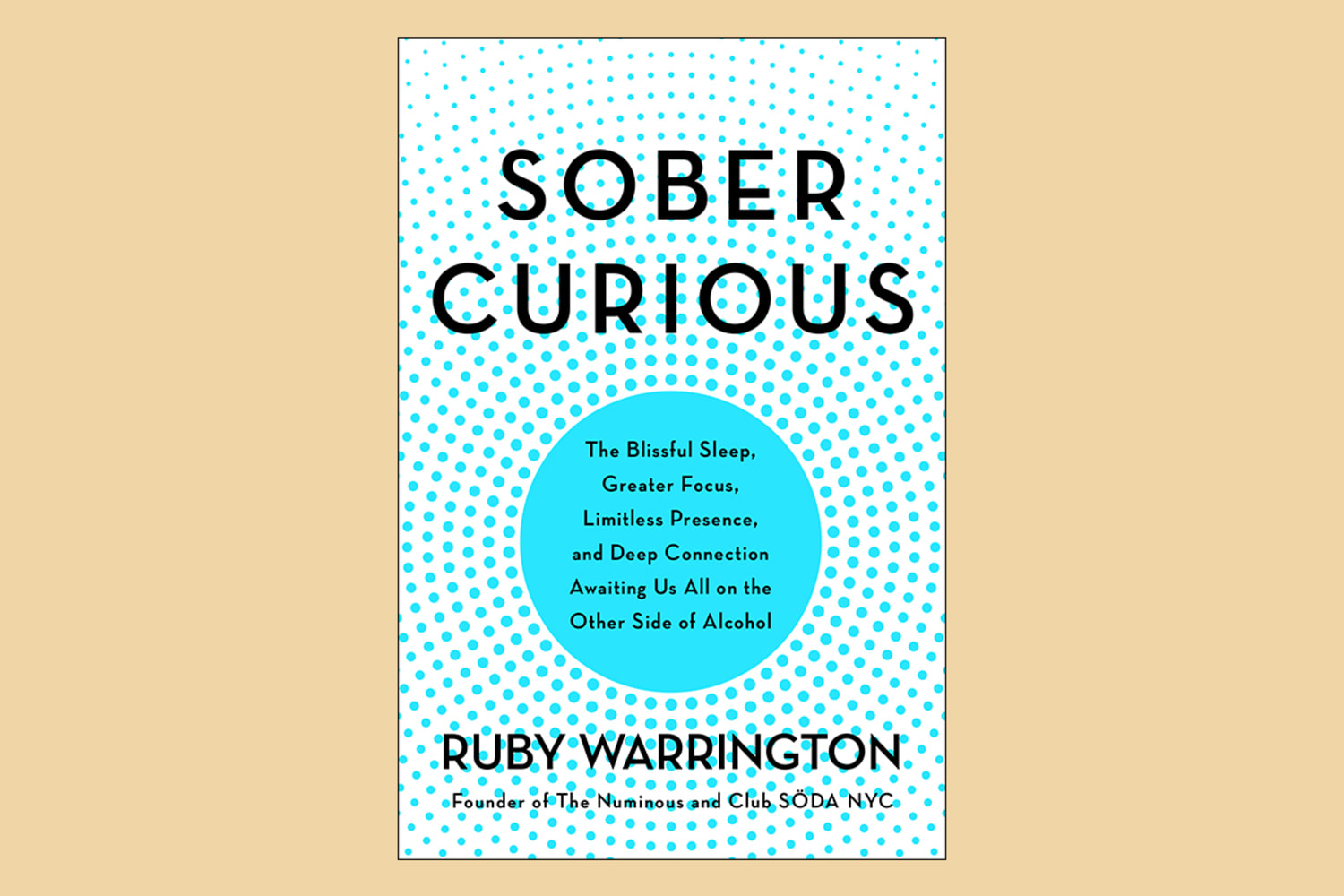Sober Curious seems so timely. Why do you think alcohol-free lifestyles are getting more attention now? Is this a growing trend?
I started talking and writing openly about being “sober curious” in 2014—meaning that I had begun to question my alcohol intake, versus going along with the dominant drinking culture, despite not identifying as an alcoholic or being in AA. Since then, the phrase has been bubbling up everywhere—coupled with an explosion of alcohol-free products and experiences. Data from 2017 shows that Dry January registrations increased 15-fold in four years in the United Kingdom, while one in five Americans are said to have participated in 2019.
Is this supported by the fact that there are lots of new brands and creative new concepts launching?
I think it’s the other way around. The new alcohol-free brands and concepts that are beginning to flood onto the market are responding to growing sober curiosity, and the resulting customer demand for ways to engage with this lifestyle.
Do you think young people view alcohol-free lifestyles differently—a proactive, positive choice, as opposed to recovering from addiction?
Absolutely. Whereas for previous generations—the beat generation, hippies, and generation X ravers, for example—getting high was seen as glamorous, rebellious, and cool, millennials and gen Zers are consistently drinking less. There are many factors playing into this, from celebrities like Kim Kardashian being open about not drinking to the always-on nature of the gig economy (no time for hangovers), the anxiety-exacerbating nature of booze (in the face of impending political and environmental disaster), and the rise of social media as a way to connect (as opposed to having to navigate the noise and social anxiety of bars and nightclubs to meet likeminded individuals).
What are some of the health benefits of sober life and how do you see it sitting within the wellbeing movement?
I think more people getting sober curious is a logical and inevitable evolution of the current wellness revolution. As people invest more time, money, and energy in wellness practices—everything from yoga and meditation to dietary shifts to alternative healing—the worse it feels to throw it all away over Friday night drinks. Not to mention that the better you begin to feel as a result of your wellness regime, the more flat and two-dimensional the drinking high begins to feel. As for the health benefits of not drinking—how long have you got?
Do you think the discourse around alcohol is evolving? It used to be quite binary—AA and addiction, or not. Do you think we need a more nuanced approach?
It’s widely recognized among addiction experts that there are shades of grey when it comes to addiction—and I do wonder if this means there can also be shades of grey to sobriety. However, giving the highly addictive nature of alcohol, which is one of the top five addictive substances on Earth, this is a very slippery slope. I don’t stand for moderation—in every instance, I have seen this thinking lead people back to drinking as much, or more, as they were before. Rather, I think it’s better to cut it out completely and have this as your default, and from there to very carefully consider in which situations it might be an appropriate substance, perhaps as a person might with other class A or pharmaceutical drugs such as painkillers.
If alcohol was launched today, do you think it would be legalized?
If the aim of creating it was to provide the general population with a way to relax and mitigate stress, then I think the negative side effects—sickness, dizziness, nausea, weight gain, higher blood pressure, headaches, addiction, et cetera—would see it thrown out before it had even left the lab!
What does this mean to brands—alcohol and others? Do you think they need to address how they market and how they sit in people’s lives?
I think alcohol is the new cigarettes—it will become increasingly uncool and socially unacceptable to drink, or to get out-of-it drunk, at least. As more and more people discover how good it feels not to drink, coupled with more exciting alcohol-free drink options coming onto the market, this trend will only continue to gain steam.



